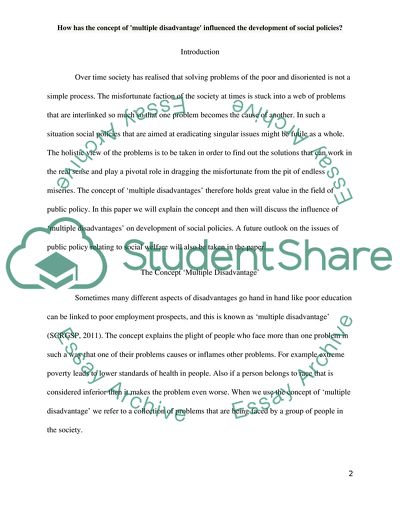Cite this document
(Multiple Disadvantage and Development of Social Policies Research Paper, n.d.)
Multiple Disadvantage and Development of Social Policies Research Paper. Retrieved from https://studentshare.org/social-science/1765064-how-has-the-concept-of-multiple-disadvantage-influenced-the-development-of-social-policies
Multiple Disadvantage and Development of Social Policies Research Paper. Retrieved from https://studentshare.org/social-science/1765064-how-has-the-concept-of-multiple-disadvantage-influenced-the-development-of-social-policies
(Multiple Disadvantage and Development of Social Policies Research Paper)
Multiple Disadvantage and Development of Social Policies Research Paper. https://studentshare.org/social-science/1765064-how-has-the-concept-of-multiple-disadvantage-influenced-the-development-of-social-policies.
Multiple Disadvantage and Development of Social Policies Research Paper. https://studentshare.org/social-science/1765064-how-has-the-concept-of-multiple-disadvantage-influenced-the-development-of-social-policies.
“Multiple Disadvantage and Development of Social Policies Research Paper”, n.d. https://studentshare.org/social-science/1765064-how-has-the-concept-of-multiple-disadvantage-influenced-the-development-of-social-policies.


